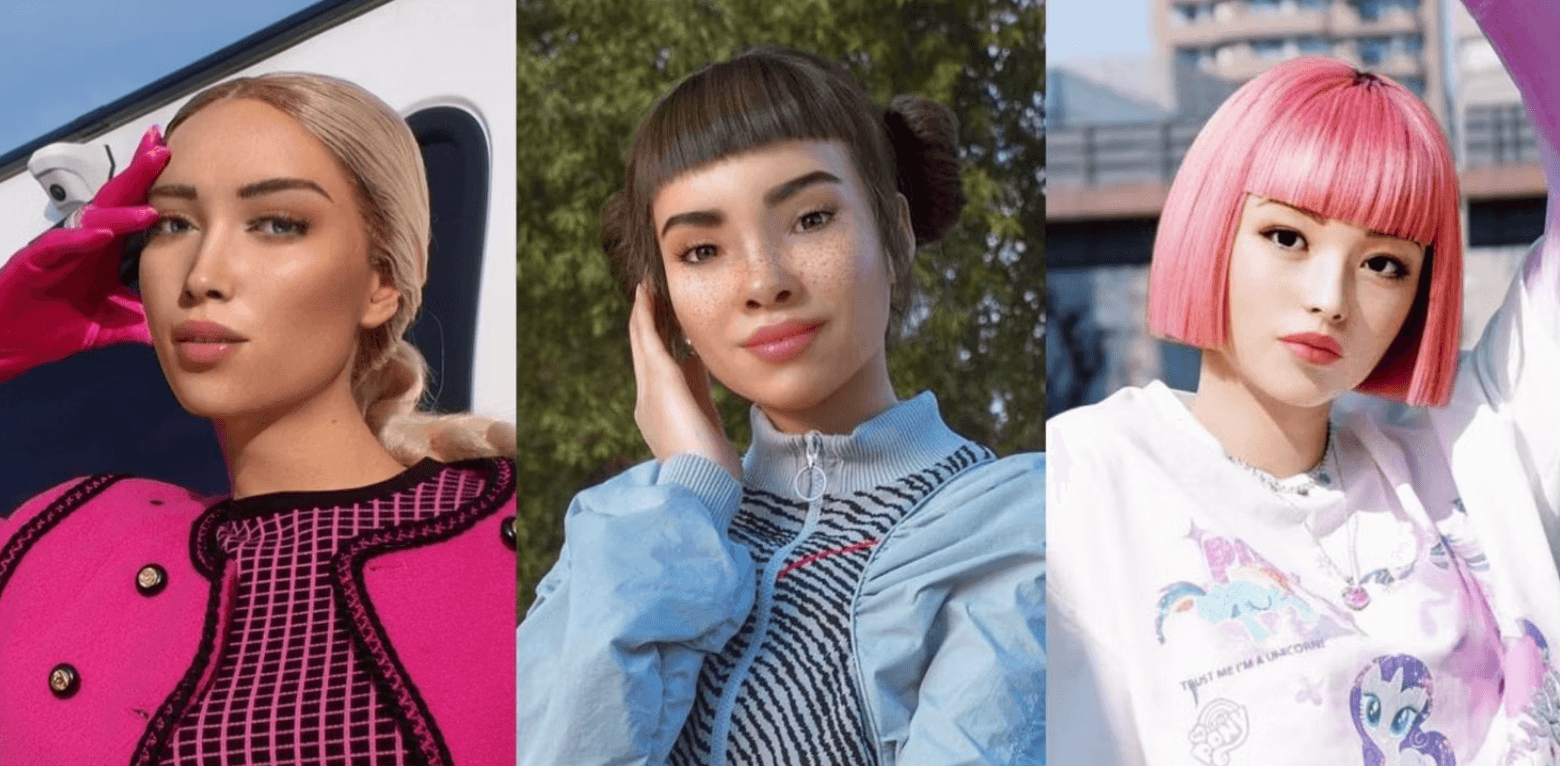Insights
Virtual-influencers – dominant or dangerous?

The emergence of a new category of influencers has provided brands with new opportunities to promote and sell their products or services in a digital realm. There is no questioning the growing dominance of these virtual influencers, but what about the ramifications that might accompany this new process of influencing? Their escalating prominence coincides with the dominance of the metaverse; avatars that can act as ambassadors, and influence people acting in the metaverse will be key looking ahead.
The New, (virtual) and most popular kid on the block is Lil Miquela. She has been described as ‘a normal, average Gen-Z influencer. She loves iced coffee, noodles, tiny handbags, and that feta cheese pasta from TikTok’…
This influencer has become incredibly dominant and has been incredibly successful winning brand deals with top fashion houses like Prada, Dior, and Calvin Klein.Fullscreen conducted a report into the impact virtual influencers, like Lil Miquela are currently having. Their report demonstrated that consumers are seeing these avatars as more than pictures on their screens but as people. Aspirational, and influential people. The survey outlines that almost 40% of GenZ are curious about these virtual influencer’s personal stories, and over a third feel as though they can relate to the avatar, due to shared interests in fashion or music. Consumers are indeed then buying what these influencers are selling, real or not. Harnessing a digital, rather than real influencer allows brands to keep their costs down. They do not have to hire spaces or people for photoshoots or account for travel – virtual influencers can be anywhere, and everywhere all at once if desired.What virtual influencers lack but consumers increasingly crave, however, is authenticity. This is an attribute that allows consumers to trust the influencers they choose to follow.Knowing that a virtual influencer has been created with a purpose to encourage, or target people to buy certain products, or live a certain way, is a deterrent for many who seek a more genuine form of influence or inspiration to live by. Another danger to consider is that virtual influencers curate an unattainable image. This is an issue with both physical and virtual influencers. But where virtual influencing doubles down on unattainability is that their persona does not fade or change like real humans – whose influence will ultimately have an expiration date when they age or lose relevance.

Capitol Records’ exploration into the world of virtual personas demonstrates the possible dangers of virtual influencing. On August 14th, the record label announced that it had signed digital rapper, and TikTok influencer ‘FN Meka’. The creatives behind FN Meka’s design received an aggressive backlash online, as people argued that the virtual influencer’s appearance demonstrated a lacking awareness and sensitivity toward the black community. The activist group Industry Blackout commented: FN Meka is ‘An amalgamation of gross stereotypes, appropriative mannerisms that derive from Black artists, complete with slurs infused in lyrics…’ The responses toward FN Meka show the importance of holding people accountable when they create or operate a virtual influencer. The same human, and societal issues must be considered in the digital realm as they are in the real world. The virtual world has the potential to be a fully inclusive space, free from gender, or racial stereotypes – but this is only possible if the creators and designers in this world manage new, and emerging identities in a sensitive way. TOO Takeaways: -Virtual influencing avoids human error that might implicate a partnership, or brand’s identity. How might your brand benefit from a lower-risk, virtual form or influencing?
– Consumers are buying into these virtual avatars’ personal stories – though fake, they are an important part of the influencing process. How can you ensure the story attached to your virtual influencer is emotive enough to encourage engagement.
– The lacking authenticity, and the frustration some consumers might have with the standards created by virtual influencers are two aspects to consider if you want to use a virtual influencer.
